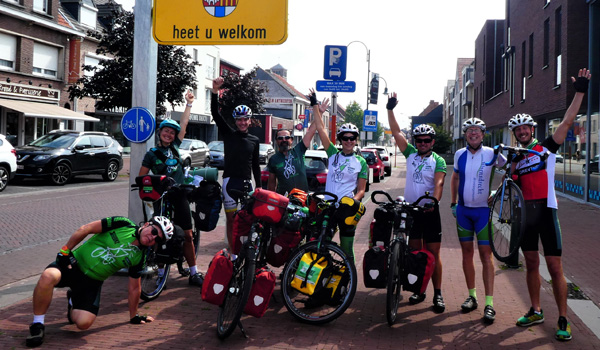What is Grassroots Sport Diplomacy?
Diplomacy is an opportunity for grassroots sport. It is value-based communication and exchange across borders. It has been taking place as citizen-to-citizen engagement for centuries, but largely outside of the governmental and political radars. Now is a good time to highlight, enhance and exploit this potential. This will make for better diplomatic actions and benefit the grassroots sport sector itself, through new and more relevant partnership opportunities, and with greater visibility of the wider societal benefits of grassroots sport.
Grassroots sport is often defined as a “physical leisure activity, organised and non-organised, practised regularly at non-professional level for health, educational or social purposes” and sport diplomacy is seen as a way for actors (States, NGOs, civil society and the private sector) to strengthen diplomatic, social and political relations with other actors, and enhance their external image and influence. Against this backdrop, we define grassroots sport diplomacy as a new qualitative, cost efficient and impactful approach aiming at:
- Increasing or creating lasting dialogue and cultural understanding;
- Facilitating transfer of knowledge between the grassroots sport sector and relevant actors (including other grassroots sport organisations, States, NGOs, civil society, or even individuals); and
- Contributing to society and individual development in the health, educational, sport or social fields.


How does it differ from other types of diplomacy?
Grassroots sport diplomacy has key advantages in the wider sport diplomacy space, as it directly involves citizens and people-to-people exchanges. It therefore also taps into the potential of public diplomacy, where direct engagement with groups of citizens helps to meet wider diplomatic objectives. It is fundamentally a bottom-up and peer-oriented approach, which borrows from the credibility of citizen engagement in non-formal settings, and is focused on mutual development and benefit. In this way, it distinguishes itself from traditional, utilitarian and formal diplomatic action, as well as from the more mediatised-, competition- and single event-related sport diplomacy initiatives seen to date.
Where does the concept come from?
In 2017, the International Sport and Culture Association (ISCA) coined the term and received a grant from the European Commission’s Erasmus+ programme to create a Grassroots Sport Diplomacy collaborative partnership that would develop this entirely new concept in a new space within the sport sector – exploring how civil society organisations work across borders and take sport diplomacy from being a handshake between elite actors to diplomatic actions at the grassroots level. This is an ISCA first and a sector first.
In December 2017, ISCA Secretary General Jacob Schouenborg was invited to introduce the Grassroots Sport Diplomacy project as one of three good practices in the European Commission’s Seminar on Sport Diplomacy.
“We are developing the concept of grassroots sport diplomacy,” he said.
“As sport diplomacy is growing as a concept, we highlight the uniqueness of a grassroots approach: Grassroots Sport Diplomacy indeed relies on values that are connected to EU level sport: open and generous exchange, citizen engagement, and facilitating learning for others. ISCA is about civil society working across borders, and Grassroots Sport Diplomacy fits right into the bigger picture.”
In January 2018, the project officially started and the partners began mapping the concept in theory and practice. In the second half of 2018, the project partners selected seven pilot initiatives that would test the concept in new settings around the world. This website and its eLearning features are designed to become an ongoing hub for professionals working on Grassroots Sport Diplomacy actions.


Who is behind it?
ISCA is leading the Grassroots Sport Diplomacy project together with international partners including three French expert institutions, European Observatory of Sport and Employment (EOSE) (the President of EOSE, Prof. Thierry Zintz, is a member of the EU High Level Group on Sports Diplomacy), Think Tank Sport and Citizenship and the French Institute for International and Strategic Studies (IRIS), three sport oriented bodies, National Olympic Committee and Sport Confederation of Denmark, UBAE from Spain and UISP from Italy, two governmental institutions, the National School, University and Leisure Sport Federation in Hungary and the Portuguese Institute for Sport and Youth, and one non-European partner, Social Service of Commerce (SESC) from Brazil.
Join us, stay informed and keep in touch!
ISCA and our partners have pioneered the concept of Grassroots Sport Diplomacy – now we invite you to join the journey with us! Sign up to the ISCA newsletter below to keep informed, share your ideas and network with our partners and experts in Grassroots Sport Diplomacy.











